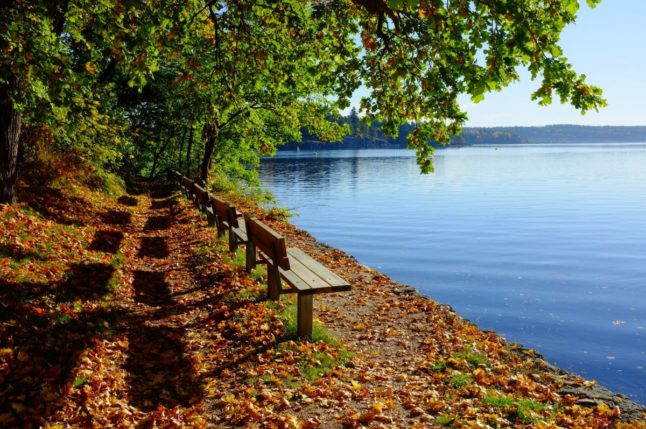EU vaccine passports
The EU’s vaccine pass will launch on July 1st and will reopen travel into Norway for fully vaccinated travellers and those that have had Covid-19 in the last six months.
Norway will be participating in the scheme and has already begun to accept health passes from some countries, which you can read more about here.
People travelling into Norway with an EU vaccine pass will be exempt from quarantine and entry requirements such as testing at the border and before arriving in Norway.
Step four of the governments reopening plan
Norway will take the final step in its plan to reopen the country and lift coronavirus restrictions if infections continue to stay low.
The government took step three in mid-June and has so far taken a step roughly every three weeks.
If infections rise, however, then the government will delay taking the next step as part of their data over dates approach to reopening.
READ MORE: What does the Delta Covid-19 variant mean for Norway’s reopening plan
Step four would see everything return to ‘almost normal’ but working from home may still be required, and there may still be some travel restrictions in place.
Citizenship applications get more expensive
The Norwegian government has decided to raise the price for citizenship applications from July 1st.
The application fee will rise from 3,700 to 5,5000 kroner.
The reason for the price hike is to cover the cost of processing the applications.
Applications for children under 18 will still be free.
10th anniversary of July 22nd terror attacks
July will mark the 10th anniversary of the July 22nd terror attacks in Norway, in which 77 people were killed.
Far-right extremist Anders Behring Breivik set off a bomb in Oslo and killed 69 people at a youth camp on Utøya island while disguised as a policeman.
Ferry prices get cheaper
Ferry prices will be sliced by 25 percent from July 1st.
The plan was initially only to cut prices ten percent. However, FRP increased the cut to 25 percent in the negotiations on the revised budget.
READ MORE: EXPLAINED: What Norway’s revised budget means for you
Parliament has set the long-term goal of cutting prices for ferries in half.
This price cut will come just in time for anyone planning a long road trip or staycation in Norway.
Soft drinks get cheaper
Ferries aren’t the only thing getting a price cut either. The tax on non-alcoholic beverages, or sugar tax, will be abolished.
The average price per litre of soft drinks will be reduced by around 2 kroner when VAT is taken into account.
READ MORE: These are the hidden costs of living in Norway
New laws and rules
From July 1st, there will be several new laws, restrictions and regulations in place.
Firstly, the punishment for sharing private or offensive photos, videos and audio recordings will be increased to a maximum of two years in prison. This law will be passed through parliament on July 1st and will come into effect shortly after.
Secondly, new rules will mean no parking signs and speed limits can apply to electric scooter users.
Scooter users will be fined for breaking the rules.
Lastly, new requirements will mean that electric charging must be available in the car parks attached to all new builds in Norway will come into effect.
Travel changes
Norway will finish harmonising its Covid traffic light classification system with the EU’s and will repeal its advice against all global travel on July 5th.
The harmonisation will see Norway loosen its requirements for “green countries”, countries deemed to have low enough infection levels to allow safe entry without quarantine.
The requirement for a country to have less than 25 Covid-19 cases per 100,000 in the last 14 days will be double to allow countries with less than 50 cases per 100,000 to become green.
READ MORE: IN DETAIL: What you need to know about Norway’s new Covid-19 rules for travel
The harmonizing of the rules may also open up entry to Norway for countries on the EU’s third country list or white list.
READ MORE: Reader question: When will Americans be able to travel to Norway again?
Fellesferie
Last but certainly not least, we have fellesferie.
Fellesferie is the collective holiday period during the last three weeks of July. This is when a large number of Norwegian residents book time off, some shops will close for three weeks, and cities like Oslo will feel eerily quiet.
You can read more about fellesferie and how holiday pay in Norway works here.



 Please whitelist us to continue reading.
Please whitelist us to continue reading.
Member comments